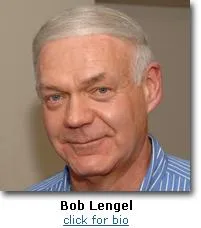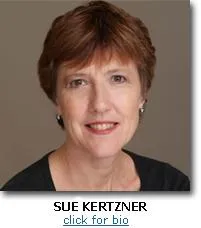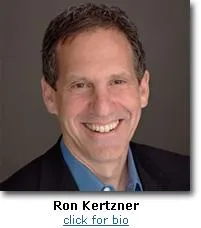
(303) 415-9347

TESTIMONIALS
"I have worked at business schools throughout the world over the last 15 years and there is none where creative thinking is more at the forefront of the working agenda than at UTSA. If we are going to get the leaders we need to lead us through the immense challenges ahead of us in the 21st century this kind of programme now at the cutting edge will need to become the norm."
Richard Olivier
Artistic Director Olivier Mythodrama London (son of Laurence Olivier)
"The conversational, relational and I would say invitational approach to leadership in business is in great demand and has found its commonsense way at last into mainstream Business Schools. I work closely with Harvard Business School, with Said Business school at the University of Oxford and with the University of Texas at San Antonio, to bring to life this radically new and yet essential and human approach to executive education."
David Whyte
(Internationally recognized poet) Seattle
Creative Leadership Seminar
Creative Leadership Seminar
Einstein warned us that "we could not solve our problems at the same level of thinking that created them." Many of our most difficult and perplexing business problems today emerge directly or indirectly from attempts to respond to a more complex and unpredictable competitive landscape with thinking born of a different era. That thinking was about management. It gave us a hammer and we looked at everything as if it were a nail. We think we can manage change, we think we can manage people, we think we can manage knowledge and we even think we can manage leaders and leadership development.
What might be that new level of thinking?
What if we reframe our most perplexing and critical challenges in the light of this new level of thinking?
What more would we also have to do, be and know to apply this thinking?
What might be next in our efforts to develop our organizations and people?
On September 3 and 4, we are hosting a one and a half day program in Boulder for people like you who have worked with us in the past and might be curiously interested in exploring these questions in a cross company conversation through the lens of a new level of thinking and related programming that has emerged in our collaboration with colleagues from the University of Texas in San Antonio.
The essence and uniqueness of this work is in its trans-disciplinary approach that holds the "hard" intellectual / analytic and "soft" emotional / spiritual aspects of organization and individual development in a holistic creative tension together in time and place as they play out in reality. No more separation of "hard" skill and "soft" skill development, and no more separation of organization and people development.
This emerging thinking is holistically focused on the accomplishment of "leadership work"; a focus that challenges the efficacy of leadership development, change management and knowledge management efforts.
Transdisciplinary Approach: Underlying Assumptions
Our work embraces a natural emergent model that suggests non-linear emergence as opposed to planned approaches to change and transformation efforts. Leadership work is to create the conditions within existing organizations for this emergence, at least temporarily as required.
Leadership is a uniquely possessed natural potential that varies among individuals - it can be awakened, but it cannot be put into people.
Leadership is not scientifically understood because it is a subjective phenomena. It cannot be awakened intellectually with the objective delivery of theory. It is awakened from a subjective inquiry energized by a transdisciplinary approach involving the archetypical mindsets of the artist, poet and mystic as well as the scientist/economist. It requires an approach that brings people present with their lives from a head, heart and soul level that invites courage born of existential anxiety.
Organizations are increasingly challenged to accomplish leadership work, but focusing on leadership development has not been a satisfactory answer. The focus needs to be on doing the leaders work itself and that work is interdependently linked to the creation of organizational cultures that allow for the natural actualization of individual leadership potential as needed.
Organizational cultures are conditioned to accomplish management work under time pressure, not leadership work. Management work is driven by the archetypical mindset of the scientist/economist. It is largely intellectual and analytical focusing on the gathering and processing of specific topic related information. It is an enactment of the model of business that is supported and enabled in MBA programs.
Management work is accomplished in meetings that we call Simple Transactive Conversations or STCs that support the existing culture and structure. They intentionally limit the exploration of unrealized possibilities that is the essence of the learning, creativity and innovation that characterizes leadership work. Control, maintenance , compliance, coordination and the search for solutions for defined problems are the focus. Mindsets that provide individuals with context are assumed to be aligned, allowing focus on the topic at hand.
The accomplishment of leadership work requires larger meeting stages that allow the processing of mindset information reflected in assumptions that underlie intellectual exchanges. The poet, artist and mystic in each individual must be present and STCs are designed to deny their presence. We call these larger stages Complex Transformative Conversations or CTCs. These stages do not naturally emerge in organizational settings and therefore leadership work is not satisfactorily accomplished. It is not for a shortage of leaders that we need to develop, it is that we do not understand how to create the space to let the natural leaders we already have emerge to do this work.
Therefore the challenge of accomplishing necessary leadership work requires a two pronged approach: a. individuals need to be awakened to their own potential of being challenged to lead as opposed to manage their personal lives - - b. in order to lead their lives, these individuals must learn how to design, host and be in Complex Transformative Conversations that open the organizational space when it is required to be fully present in their potential.
The ability to open CTC space as needed assures leadership work will be accomplished and this work involves learning, creativity and innovation that makes planned change unnecessary and transformation naturally emergent. Change occurs naturally when people are brought fully present with their reality and CTCs invite this presence.
Details & Registration
September 3-4 2015, Boulder, Colorado
Thursday: 9:00 AM - 5:00 PM, Friday: 9:00 AM - 1:00 PM
$1,000 per person
REGISTER - Contact Ron Kertzner
([email protected]) 303-517-6804
Einstein warned us that "we could not solve our problems at the same level of thinking that created them." Many of our most difficult and perplexing business problems today emerge directly or indirectly from attempts to respond to a more complex and unpredictable competitive landscape with thinking born of a different era. That thinking was about management. It gave us a hammer and we looked at everything as if it were a nail. We think we can manage change, we think we can manage people, we think we can manage knowledge and we even think we can manage leaders and leadership development.
What might be that new level of thinking?
What if we reframe our most perplexing and critical challenges in the light of this new level of thinking?
What more would we also have to do, be and know to apply this thinking?
What might be next in our efforts to develop our organizations and people?
On September 3 and 4, we are hosting a one and a half day program in Boulder for people like you who have worked with us in the past and might be curiously interested in exploring these questions in a cross company conversation through the lens of a new level of thinking and related programming that has emerged in our collaboration with colleagues from the University of Texas in San Antonio.
The essence and uniqueness of this work is in its trans-disciplinary approach that holds the "hard" intellectual / analytic and "soft" emotional / spiritual aspects of organization and individual development in a holistic creative tension together in time and place as they play out in reality. No more separation of "hard" skill and "soft" skill development, and no more separation of organization and people development.
This emerging thinking is holistically focused on the accomplishment of "leadership work"; a focus that challenges the efficacy of leadership development, change management and knowledge management efforts.
Transdisciplinary Approach: Underlying Assumptions
Our work embraces a natural emergent model that suggests non-linear emergence as opposed to planned approaches to change and transformation efforts. Leadership work is to create the conditions within existing organizations for this emergence, at least temporarily as required.
Leadership is a uniquely possessed natural potential that varies among individuals - it can be awakened, but it cannot be put into people.
Leadership is not scientifically understood because it is a subjective phenomena. It cannot be awakened intellectually with the objective delivery of theory. It is awakened from a subjective inquiry energized by a transdisciplinary approach involving the archetypical mindsets of the artist, poet and mystic as well as the scientist/economist. It requires an approach that brings people present with their lives from a head, heart and soul level that invites courage born of existential anxiety.
Organizations are increasingly challenged to accomplish leadership work, but focusing on leadership development has not been a satisfactory answer. The focus needs to be on doing the leaders work itself and that work is interdependently linked to the creation of organizational cultures that allow for the natural actualization of individual leadership potential as needed.
Organizational cultures are conditioned to accomplish management work under time pressure, not leadership work. Management work is driven by the archetypical mindset of the scientist/economist. It is largely intellectual and analytical focusing on the gathering and processing of specific topic related information. It is an enactment of the model of business that is supported and enabled in MBA programs.
Management work is accomplished in meetings that we call Simple Transactive Conversations or STCs that support the existing culture and structure. They intentionally limit the exploration of unrealized possibilities that is the essence of the learning, creativity and innovation that characterizes leadership work. Control, maintenance , compliance, coordination and the search for solutions for defined problems are the focus. Mindsets that provide individuals with context are assumed to be aligned, allowing focus on the topic at hand.
The accomplishment of leadership work requires larger meeting stages that allow the processing of mindset information reflected in assumptions that underlie intellectual exchanges. The poet, artist and mystic in each individual must be present and STCs are designed to deny their presence. We call these larger stages Complex Transformative Conversations or CTCs. These stages do not naturally emerge in organizational settings and therefore leadership work is not satisfactorily accomplished. It is not for a shortage of leaders that we need to develop, it is that we do not understand how to create the space to let the natural leaders we already have emerge to do this work.
Therefore the challenge of accomplishing necessary leadership work requires a two pronged approach: a. individuals need to be awakened to their own potential of being challenged to lead as opposed to manage their personal lives - - b. in order to lead their lives, these individuals must learn how to design, host and be in Complex Transformative Conversations that open the organizational space when it is required to be fully present in their potential.
The ability to open CTC space as needed assures leadership work will be accomplished and this work involves learning, creativity and innovation that makes planned change unnecessary and transformation naturally emergent. Change occurs naturally when people are brought fully present with their reality and CTCs invite this presence.
Details & Registration
September 3-4 2015, Boulder, Colorado
Thursday: 9:00 AM - 5:00 PM, Friday: 9:00 AM - 1:00 PM
$1,000 per person
REGISTER - Contact Ron Kertzner
([email protected]) 303-517-6804
TESTIMONIALS
"I have worked at business schools throughout the world over the last 15 years and there is none where creative thinking is more at the forefront of the working agenda than at UTSA. If we are going to get the leaders we need to lead us through the immense challenges ahead of us in the 21st century this kind of programme now at the cutting edge will need to become the norm."
Richard Olivier
Artistic Director Olivier Mythodrama London (son of Laurence Olivier)
"The conversational, relational and I would say invitational approach to leadership in business is in great demand and has found its commonsense way at last into mainstream Business Schools. I work closely with Harvard Business School, with Said Business school at the University of Oxford and with the University of Texas at San Antonio, to bring to life this radically new and yet essential and human approach to executive education."
David Whyte
(Internationally recognized poet) Seattle


